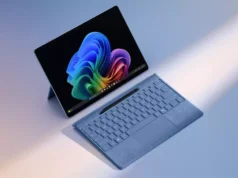Andy Rubin hit headlines a few days back when he launched his Essential smartphone. If the advanced features of the handset together with its landmark design aren’t enough, Rubin also said his latest venture isn’t just about selling phones but also redefining the very idea of our interaction with smartphones. Put in other words, Rubin said he wants to cure our smartphone addiction.
Rubin, to begin with, is no stranger to smartphones. He toyed with the idea of a mobile device that ran apps way before even Android was born. Of course, all of it took on a new meaning once Android came on to the scene. And now with the OS powering more than 85 percent of the smartphones in the world, Rubin ironically has a new problem to deal with, that of over-reliance on the smartphone. Or it is our currently prevalent practice of firing up our phones every few minutes to check with the latest notifications that Rubin is referring to here.
Andy Rubin said he also has the cure for the same as well, which he said happens to be a future priority area for his company Essential. And the way he wishes to achieve the same is greater reliance on artificial intelligence backed programs which will form an inherent part of the future Android versions that the phones will come loaded with.
That, in fact, happens to be a hint of Essential contemplating launching a new mobile platform in future that would be based on Android but would nowhere near what it is right now. The likes of Alexa or Siri would be puny in comparison to the upcoming Android OS version so far as their AI prowess is concerned but refused to give out any specific details.
Rubin’s vision though is based on a simple thought process, that of developing a new virtual you that would be taking over most of the tasks that you perform. With the computer program taking care of those, you would be spared to get along with other aspects of life.
Going by an example that Rubin cited, there could be around half a dozen options to a message like an invitation to an all-sushi dinner. The OS would be watching the response you opt for from among those provided and based on the several such responses you make, there would be a time when the platform will be able to make up its mind without you being involved in it.
So the more you use the phone, the more adept it will become in picking up your likes and dislikes. Overtime, such a knowledge base thus created will come in handy in enabling the device to perform tasks that require you to perform.
Interestingly, Google, the present owners of Android, too has stated they are working to enrich the platform with AI bits to ensure it more human-like capabilities. With Rubin, widely considered the father of Android too being on a similar path, it sure is an exciting time ahead as regards the future of Android.










